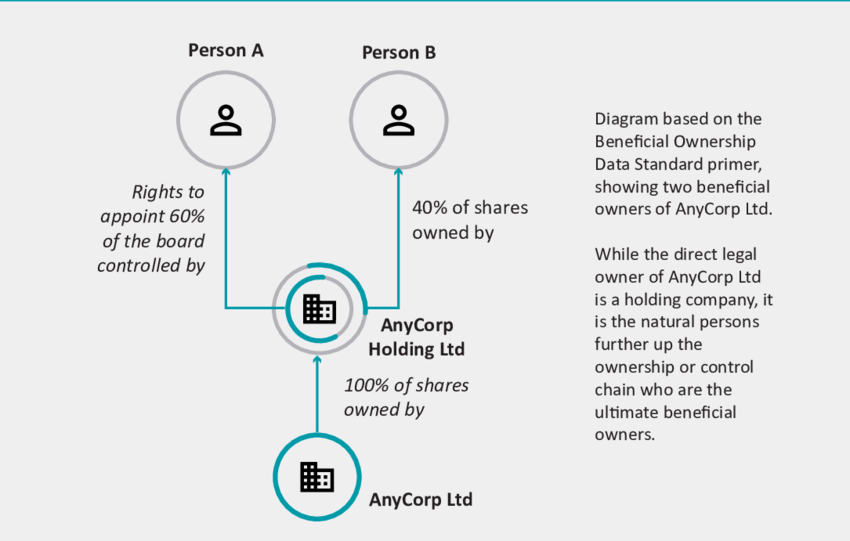Why Beneficial Ownership Data Should Interest You.

The Beneficial Ownership Data Standard (BODS) is an open data standard for publishing data on company ownership and control. You can find out more about the standard and the initiative to publish BODS data here.
Over 80 countries are already committed to using the standard, so we can expect to see more of this data in the coming years. So why is this important to buyers and suppliers?
What The BODS Means For Buyers
Open Corporate Data. Almost all data on corporate structures is held in private databases with proprietary models that prevent buyers from sharing their data with others. Open data allows buyers to share their analysis with others. This makes it easier for buyers to collaborate on purchasing and to hold suppliers to account.
Demand Aggregation. Understanding a corporate structure gives buyers the ability to track spend across all entities within that structure. This BODS data can leverage total spend in return for better prices.
Better Social Value Procurement. Better data on corporations makes it possible to determine their social value. For example, are suppliers genuinely small businesses, or are they owned and controlled by a large company? Are suppliers located in areas of poverty? Do they have minority ownership? BODS data makes it easier to install social value procurement programmes.
Better Counter Fraud Analysis. Assessing conflict of interest requires the review of first-order suppliers and potential conflicts for the officers of controlling companies. Open data on corporate control is a vital tool in combatting procurement corruption.
Better Risk Analysis. Enron and other financial failures have shown the need to check the primary contractor as well as the financials of other organisations within that structure, which could be used to hide debt or losses.
Better Market Intelligence. In public procurement, publishing BODS data alongside open contracting data makes it easier to understand the dynamics of a market. Questions such as, who has the majority market share? or, is a market that is becoming more or less competitive? Buyers can find the best performing suppliers and use the data to secure more competition in public markets, securing lower costs and more innovation.
What The BODS Means For Suppliers
Insight Into Corporate Structures. BODS will also impact suppliers, who will need to be ready to share information about their companies. They can expect greater scrutiny of both their ownership and structures. This could be particularly relevant for suppliers to Government, as it could mean companies will have to detail any offshore structures.
Greater Competitor Insight. Suppliers will able to scrutinise the structures and activities of rival suppliers. When BODS data is combined with open contracting data, it becomes easier to identify contracts awarded to competitor suppliers. This provides opportunities to target those contracts at renewal.
Greater Focus On Individuals. BODS can also record data on individuals, both as company directors and officers. As a result, individuals are likely to face a greater level of scrutiny, whether as a company owner or as an individual with control over a network of companies. As BODS data becomes more prevalent, it will be easier to track whether those who contribute to politics or public affairs are also beneficiaries of public funds, either directly or through a network of companies.
Increasing the transparency of contracts provides new tools for buyers and greater scrutiny of suppliers. Suppliers need to be ready for such scrutiny and turn it into opportunity. At the same time, buyers need to be ready to exploit the options that transparency provides for improving market efficiency and preventing corruption.
To talk to us about your procurement data needs, get in touch at contact@openopps.com



